Lionesses join the England heroes of 1966 as they seal Euro 2022 glory on historic day at Wembley

England’s Lionesses sealed the country’s greatest footballing triumph in over half a century as they were crowned European champions for the first time with a 2-1 win over Germany after extra-time at Wembley.
Substitute Chloe Kelly scrambled the ball home in the 110th-minute to secure England’s first major tournament triumph since the 1966 World Cup.
In terms of wider significance, it might be the most consequential result at Wembley since England’s men beat Germany 56 years ago, a genuine before and after moment for the fastest growing sport in the country.
In Pictures | Women’s Euro 2022 Final: England vs Germany
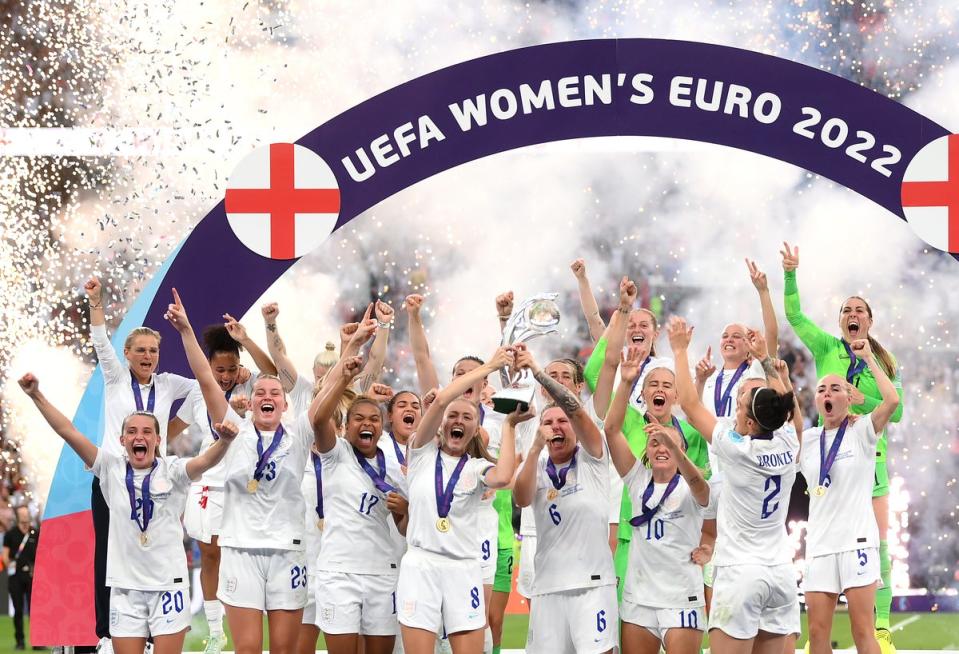
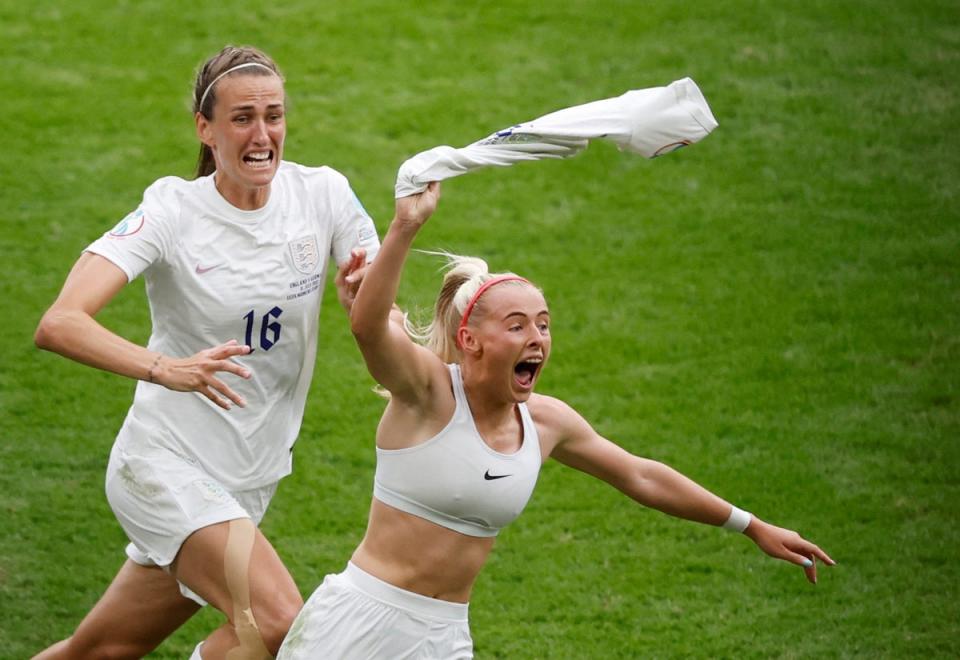
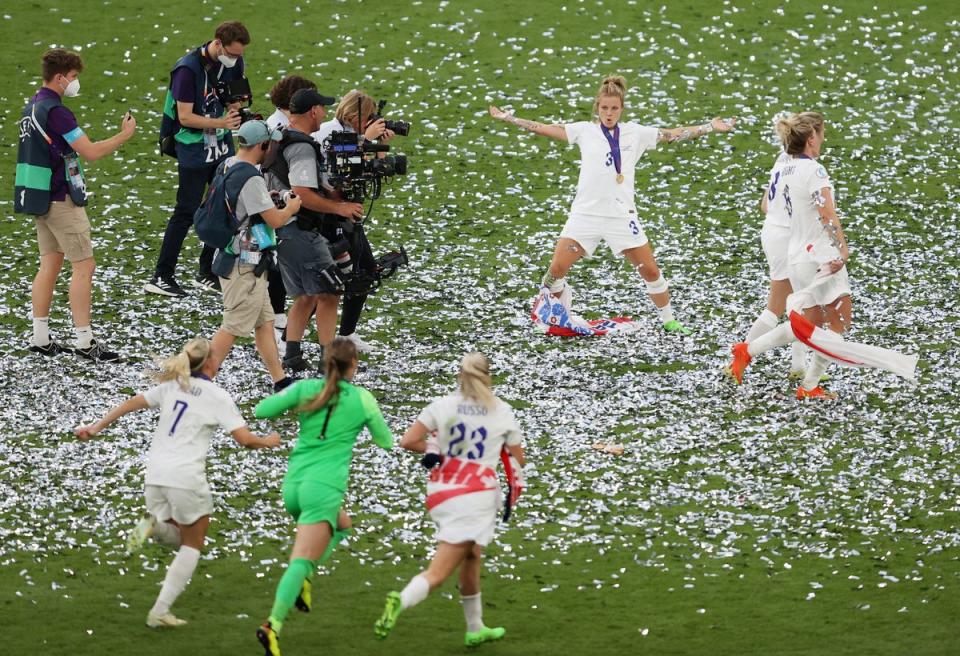
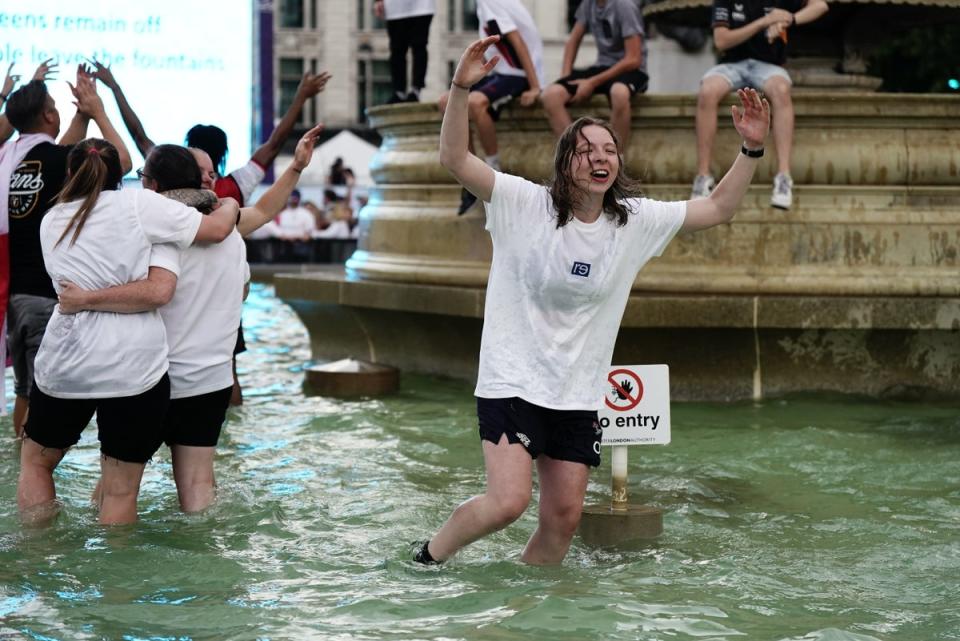
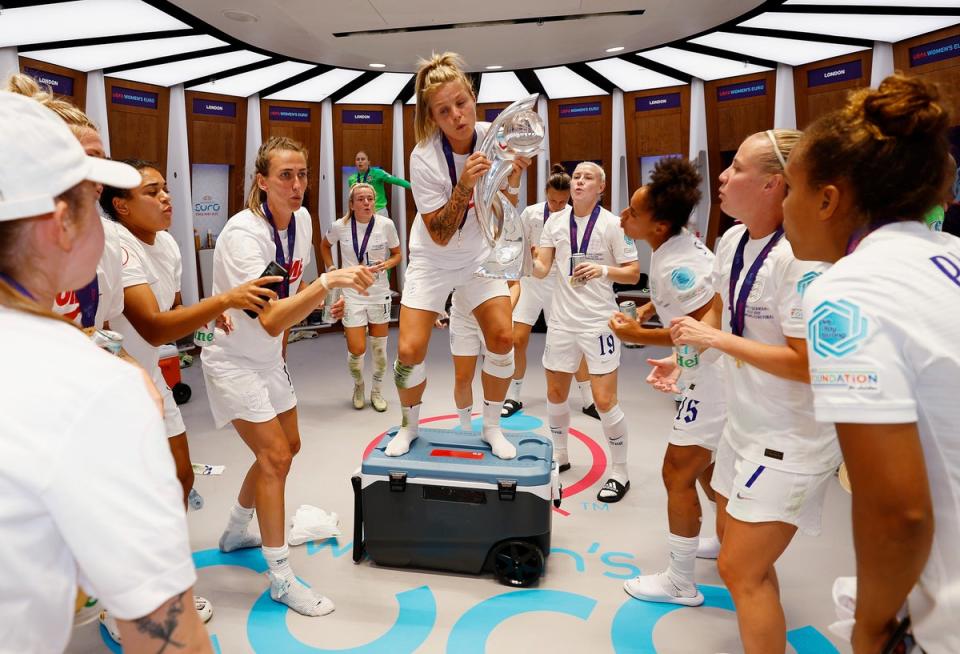
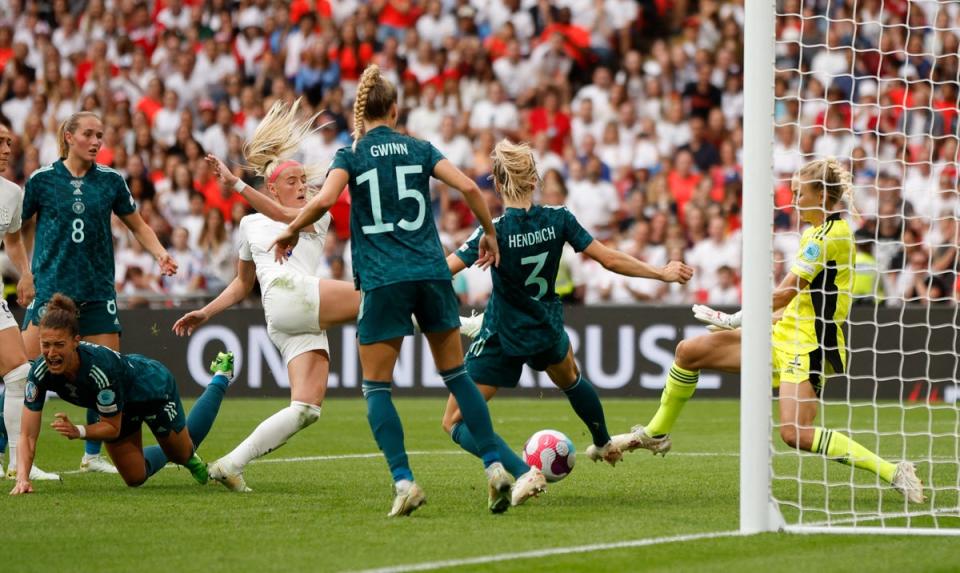
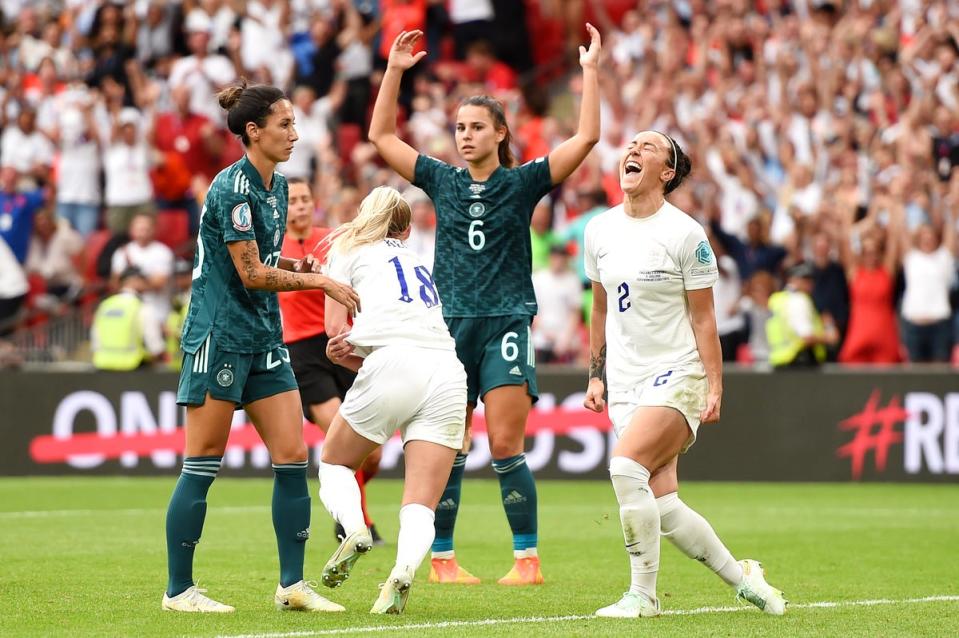
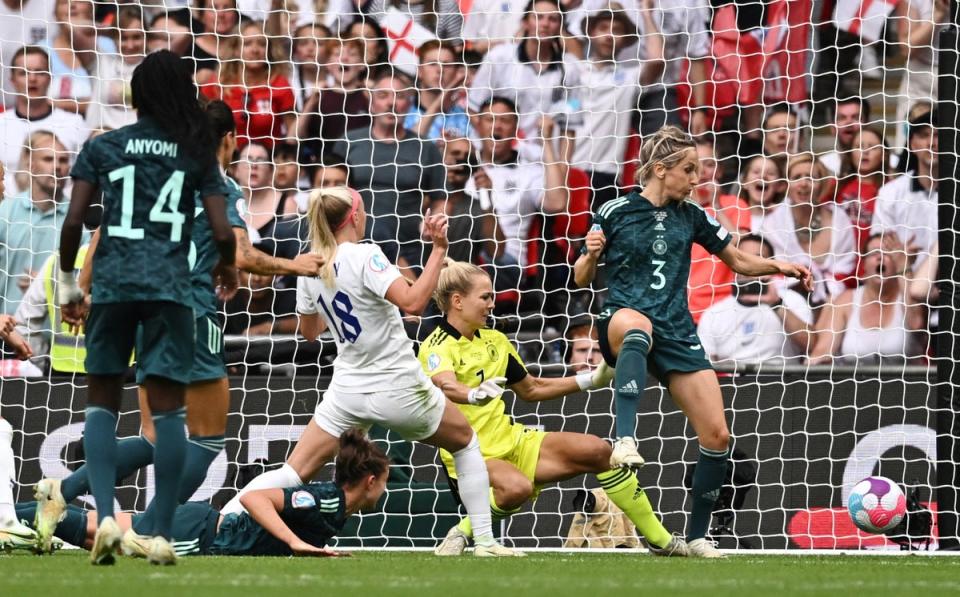
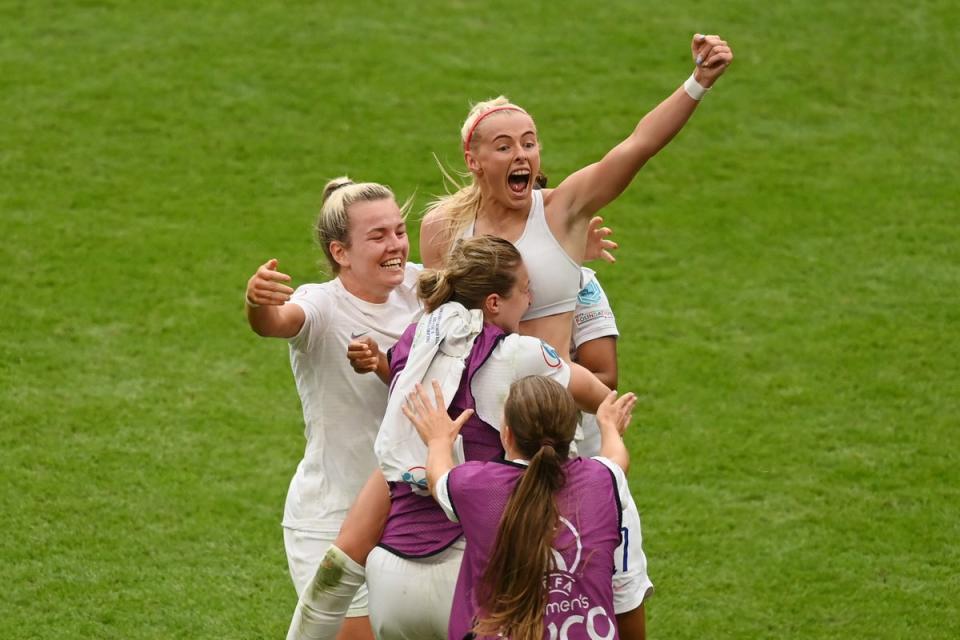
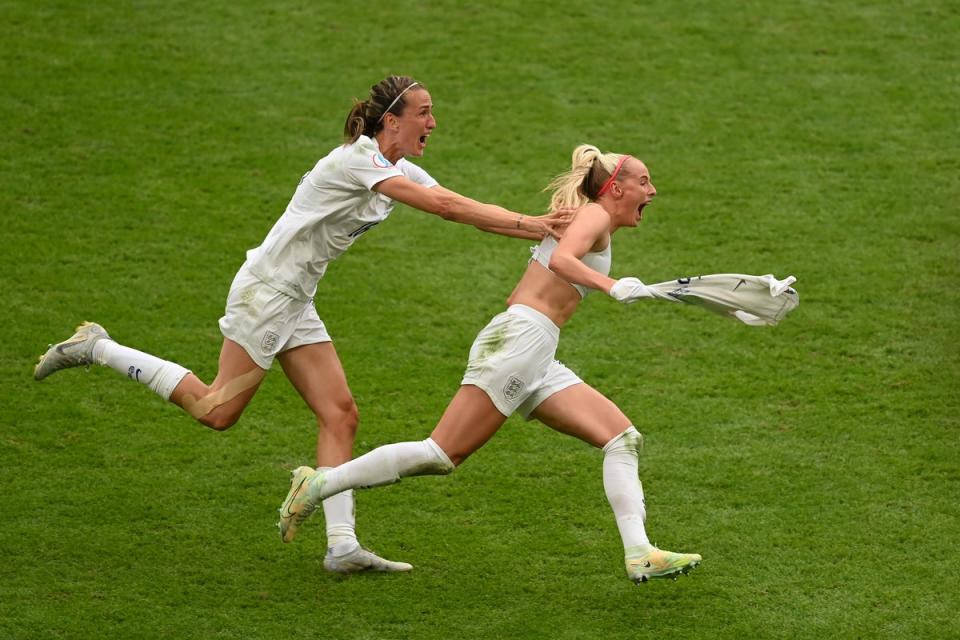
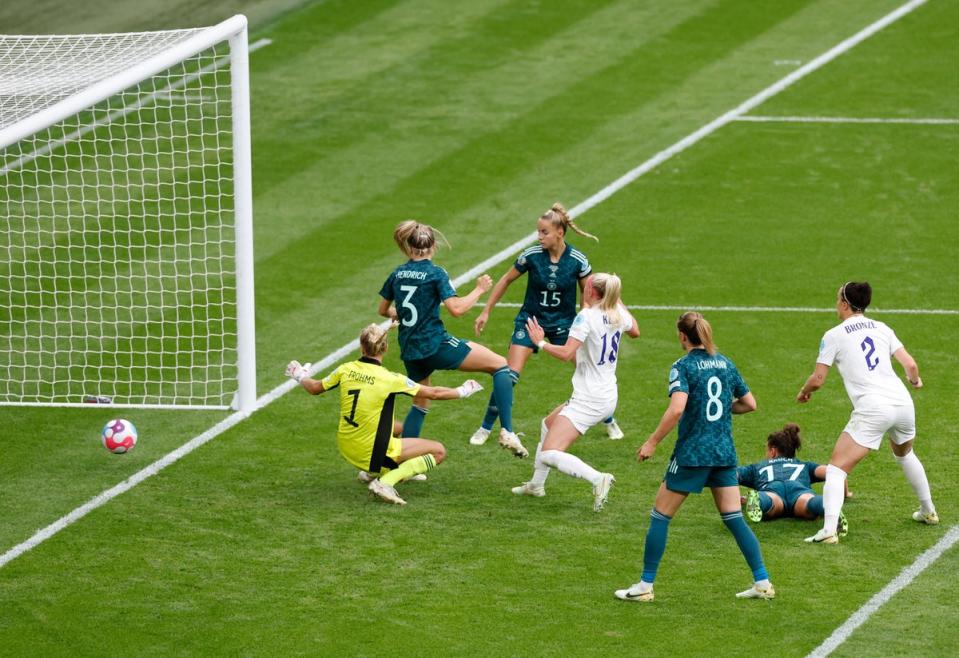
It will make England’s players and their head coach Sarina Wiegman into household names and accelerate the remarkable ascent of the women’s game, which has been opened up to a massive new audience of supporters from across generations during this European Championship.
The true significance of the occasion may only become apparent in the fullness of time but the night felt historic, and the challenge for the Football Association and wider country is to harness the emotion of this triumph, and turn it into radical change.
The scenes before, during and after the match were unlike anything ever seen at women’s football in this country before, with a record crowd of 87,192 for a men’s or women’s Euros game creating an atmosphere of almost exaggerated bonhomie.
Direct comparisons with the men’s game are rarely helpful but it was impossible not to compare the occasion to England’s defeat at the final of Euro 2020 last summer, which was marred by grim anti-social behaviour.
Parents led children up a relaxed Wembley Way while England and Germany supporters posed for selfies, and small girls found high ground to proudly display their England flags.
There was no mosh-pit of flying beers. No-one did inappropriate things with flares. And no-one booed the German anthem.
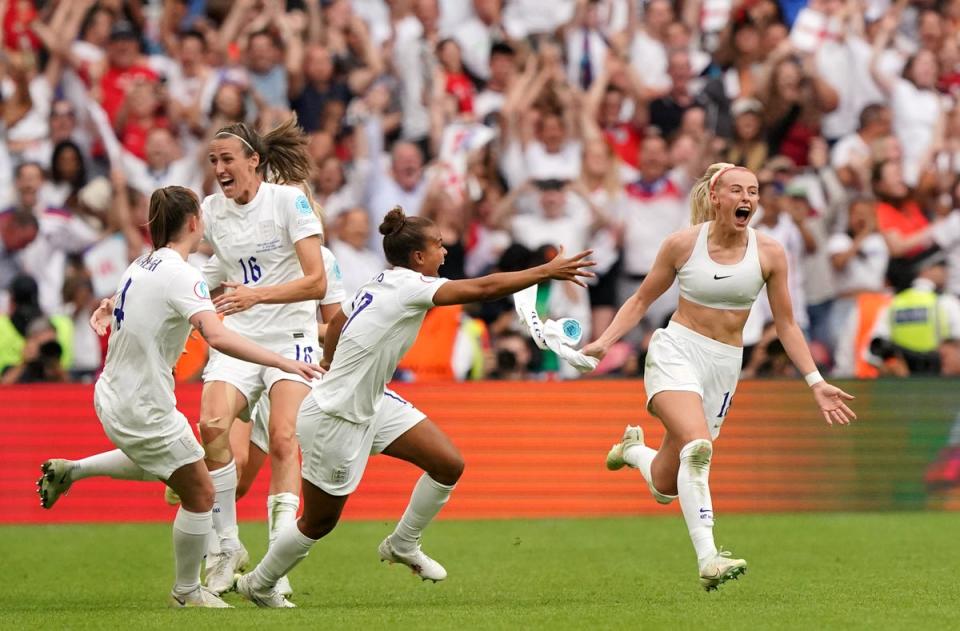
A relaxed and friendly crowd still raised the roof when Kelly poked over the line after Germany had failed to clear a corner, as England dug out another dogged result, despite having been second best for long periods against the experienced visitors.
The sense of occasion and history - as well as an inconsistent refereeing performance from Kateryna Monzul - made a full-throttle contest often cagey, but two of the goals were of the highest quality.
Toone had been on the pitch for just six minute when she opened the scoring just after the hour with a composed finish, racing clear of the last defender and dinking over the onrushing goalkeeper in two deft touches.
If the finish was good, the pass from Kiera Walsh, the game’s outstanding player, was sublime as she picked out Toone’s run from deep inside her own half and dissected the German defence.
It was a goal worthy of winning any final but Germany had other ideas, and their equaliser was also eye-catching, Lina Magull rifling into the roof of the net after 79 minutes to cap a fine team move.
England struggled to keep possession after Germany’s goal and as extra-time and then penalties looming, you wondered if this was heading the same way as other England near misses.
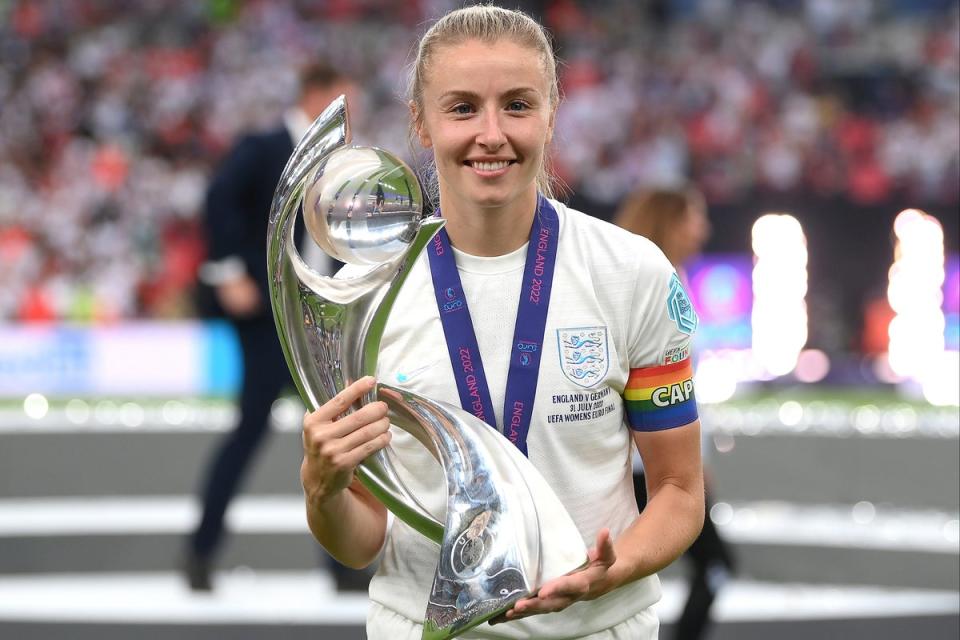
But Wiegman’s England side are different. Wiegman has only been in the job since September but in a matter a months she has established herself as one of the most important figures in the history of women’s football in this country, joining other pioneers like Hope Powell, Alex Scott, Emma Hayes and Kelly Smith.
Germany had the history and the pedigree, having won all eight of their previous Euros finals, not to mention a highly-efficient system of pressing, but Wiegman has fostered an unshakeable belief in England.
When they do not demolish their opponents, as against Norway and Sweden, they find a way, just as they did against Austria, Spain and again here when it mattered most.
Wiegman’s substitutions have also a huge factor in England’s success and once again she resisted temptation to tinker with her XI but changed the game from the bench with the introduction of Toone, Alessia Russo and Kelly after Germany had dominated the start of the second half.
The Dutchwoman has now won 12 out of 12 matches at the European Championship, after winning on home soil with her native Netherlands in 2017, and should now be regarded as among Europe’s top coaches - male or female.
England enjoyed some breaks on the night, particularly the injury to Germany taliswoman and captain Alexandra Popp during the warm-up, which robbed her the chance to compete with the Golden Boot - won by Beth Mead, who matched Popp’s six goals but got three assists.
England were also lucky a goalmouth scramble in the first half eventually fell to the excellent Mary Earps, while Magull cracked the upright shortly after Toone’s goal.
For England, the result was revenge for their 6-2 defeat to Germany in the 2009 final in a half-empty stadium in Helsinki, although the win was obviously about so much more.
The Football Association have steadfastly resisted playing ‘Football’s Coming Home’ this summer, with the anthem proving motivational for England’s opponents at the last few tournaments, but seconds after the final whistle it blared out around Wembley, as the Lionesses made history.

